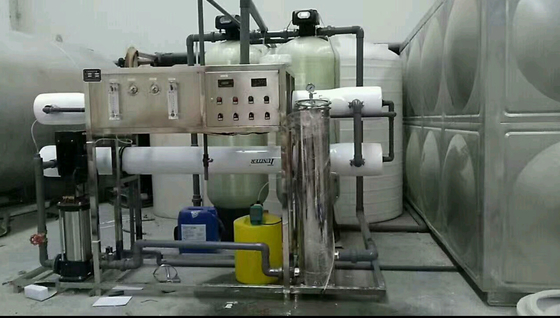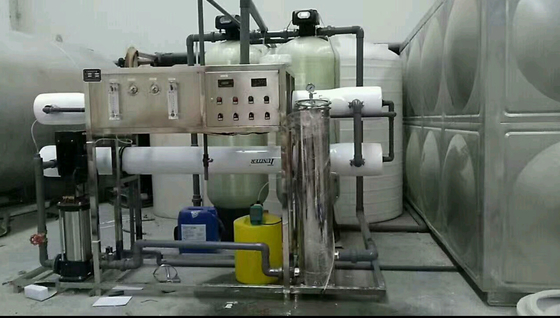-
Condensate Water Recovery Device
-
Reverse Osmosis Equipment
-
Fully Automatic Water Softener
-
Industrial Sand Filter
-
Water Supply Equipment
-
Chemical Dosing Device
-
Container Flipper
-
Container Loading and Unloading Machine
-
Truck Flipper
-
Electric Transfer Cart
-
Electronic Weighbridge
-
Mobile Loading Dock Ramp
-
Air Compressor Heat Recovery
-
Water Treatment Accessories
Commercial Ro Unit For Purified / Ultrapure Water Ultrafiltration Ro Plant Equipment

Contact me for free samples and coupons.
Whatsapp:0086 18588475571
Wechat: 0086 18588475571
Skype: sales10@aixton.com
If you have any concern, we provide 24-hour online help.
x| Features | High Efficiency, Energy-saving, Environmentally Friendly, Intelligent, And Versatile. | Origin | Taian, Shandong |
|---|---|---|---|
| Application Fields | Electronics, Industrial, Pharmaceutical, Food, And Other Industries For The Preparation Of Purified Water And Ultrapure Water. | Product Material | Composite Material |
| Brand | Tonglida | Product Information | RO Reverse Osmosis Water Treatment Equipment For Purified Water, Ultrapure Water, And Ultrafiltration |
| Highlight | ultrafiltration ro plant equipment,ultrafiltration commercial ro unit,food commercial ro unit |
||
Product Description:
Reverse osmosis systems are usually comprised of two main units, the pre-treatment unit and the RO main unit. Depending on the user's material and water quality requirements, the selection of RO membrane types can be tailored to fit their specific needs. The RO membrane is created using highly molecular materials and advanced manufacturing processes, making it a process membrane. This membrane only allows water molecules to pass through while rejecting solutes.
By employing a pump and applying high pressure, when the feedwater pressure on one side of the semi-permeable membrane surpasses the osmotic pressure, the water molecules can permeate through the membrane to generate purified water. The semi-permeable membrane does not allow dissolved and undissolved inorganic salts, heavy metal ions, organic substances, bacteria, colloids, and other elements in the feedwater to pass through and are subsequently removed with the concentrate.
Features:
High efficiency, energy-saving, environmentally friendly, intelligent, and versatile.
Technical Parameters:
The reverse osmosis membrane has a much smaller pore size of 0.0001 micrometers compared to a typical PP cotton filter cartridge with 5 micrometer pore size, and an ultrafiltration membrane with 0.01 micrometer pore size. The bacteria and heavy metal ions have a pore size of 0.001 micrometers, which is effectively removed by the reverse osmosis equipment. This means that the equipment can efficiently eliminate impurities, bacteria, and other substances from water.
The water production capacity of reverse osmosis equipment can range from 1 to 100 tons, depending on specific requirements. With a minimum water production capacity of 7.8 liters per treatment, it can easily accommodate requirements of households. The equipment can be configured to produce various water quantities, such as 0.5 tons, 1 ton, 2 tons, 5 tons, 10 tons, 50 tons, 100 tons, etc.
The fully-automatic control valves of the reverse osmosis equipment can be set based on flow rate or time. The filter media of the equipment can be self-cleaned online, without the need for manual monitoring. This makes the equipment very convenient, efficient, and labor-saving.
Reverse osmosis equipment has a long service life due to the use of quartz sand, activated carbon, scale inhibitors, fine filtration, and five-stage reverse osmosis filtration. This combination of materials and filtration result in a longer lifespan of the equipment.
Reverse osmosis equipment can achieve a recovery rate of up to 75%. This makes it an efficient and sustainable choice for water treatment needs.
Applications:
There are various industries that require purified water and ultrapure water, including electronics, industrial, pharmaceuticals, and food. In these industries, purified water is used for the preparation of different products.
For the textile and chemical industries, process water and chemical circulating water need to be purified and prepared before being used. Purified water is also required for manufacturing chemical products.
The food and beverage industry requires purified water for various purposes, including for drinking, preparing beverages, beer, liquor, and health products. The water must be purified to ensure its safety for human consumption.
In industrial production, water is required for useful substance concentration and recovery. Water needs to be purified and concentrated for this purpose.
In the power industry, high-pressure boiler feedwater and boiler feedwater for thermal power boilers require pretreatment. Water is also required for low-pressure boiler power systems in plants and mines.
Desalination and desalting of brackish water and seawater are required for various industries. This includes the desalination of seawater for islands, ships, offshore drilling platforms, and brackish water areas.
The primary desalination equipment is used for the high-purity water production in pure water systems. This equipment is important as it helps to remove impurities from the water.
Various enterprises and institutions with a large number of people require purified water for their daily use. This includes communities, real estate properties, schools, factories, hospitals, tea houses, hotels, beauty salons, and canteens.
Water is also required for the electronics industry, such as rinsing water for integrated circuits, silicon wafers, display tubes, and other electronic components. For the pharmaceutical industry, large-volume infusion, injections, tablets, biochemical products, and equipment cleaning require purified water.
Finally, ultra-pure water is used for various process uses, including automotive, household appliance painting, coated glass, cosmetics, and fine chemicals, among others.





